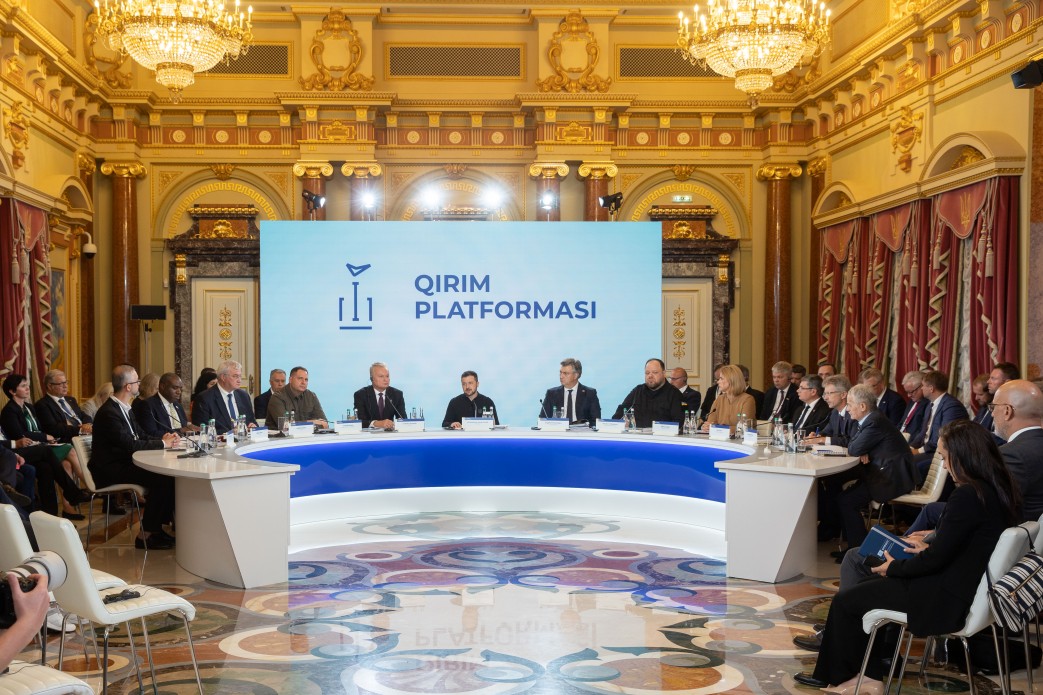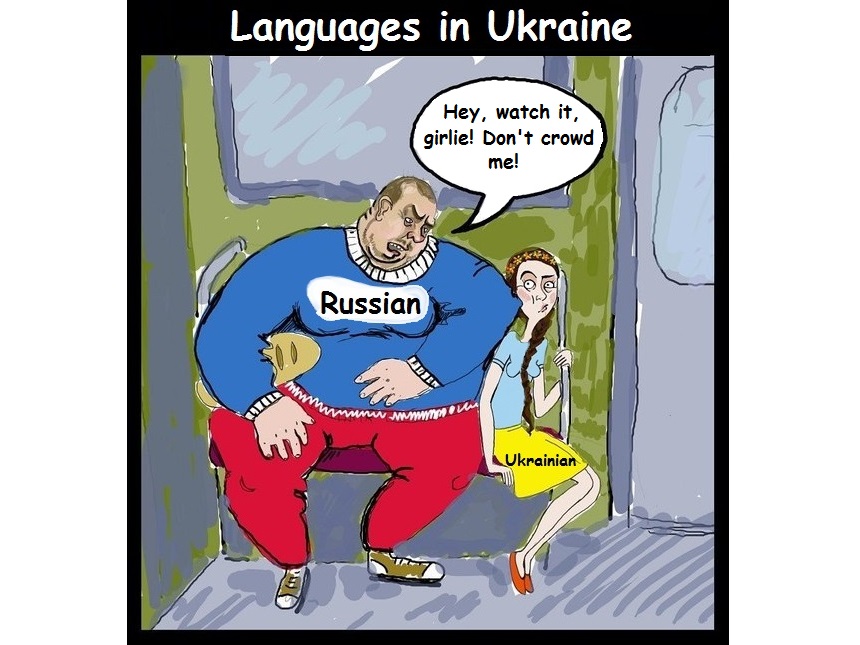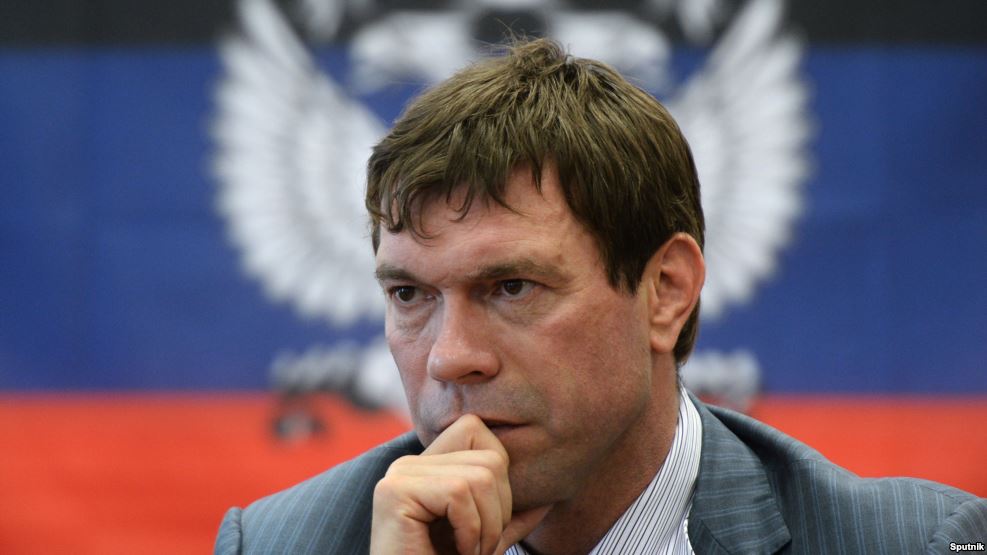Over 60 participants joined the Fourth Summit of the International Crimea Platform on 11 September, as announced by President of Ukraine Volodymyr Zelenskyy during a press conference with President of Lithuania Gitanas Nausėda, Prime Minister of Croatia Andrej Plenković, and Prime Minister of Latvia Evika Siliņa.
President Zelenskyy emphasized that the Crimea Platform has successfully regained and strengthened global attention to Russia’s occupation of Ukrainian Crimea.
“The Crimea Platform truly strengthens Ukraine in every sense, especially on the diplomatic level. Russia must see and it definitely sees that the world does not stop moving towards the restoration of justice,” Zelenskyy said.
Lithuanian President Gitanas Nausėda stressed that Lithuania will never recognize the occupation of Ukrainian territories and will continue to demand Russia’s withdrawal of troops. Croatian Prime Minister Andrej Plenković assured Ukraine of further support, including assistance in the energy sector, demining, treatment of military personnel, and recreation for Ukrainian children.
Latvian Prime Minister Evika Siliņa stated that all foreign leaders personally attended the summit to reaffirm that Crimea is Ukraine and Russia will lose this war. She also announced Latvia’s third military aid package since the beginning of the year, which will include armored vehicles and drones.
Support for Ukraine’s territorial integrity
The summit saw participation from numerous high-level officials and state leaders, all emphasizing the importance of maintaining international pressure on Russia and supporting Ukraine’s territorial integrity.
Mustafa Dzhemilev, leader of the Crimean Tatar people, expressed gratitude for the international support and stressed the importance of timely and sufficient aid to Ukraine. He also highlighted the need to reconsider the ban on using Western-supplied weapons to strike targets deep inside Russia and emphasized the key role of Crimea’s liberation in ending the war.
President of Poland, Andrzej Duda, emphasized that the illegal annexation of Crimea in 2014 revealed the true criminal face of Russia and Vladimir Putin. He noted that these actions were a prelude to the events we have been witnessing since 2022.
UK Foreign Secretary David Lammy stated that Russia’s February 2022 invasion was not an isolated event but a continuation of its long-standing expansionist agenda. He also highlighted that Russia has stolen and exported nearly 400,000 tons of Ukrainian grain through Crimean ports.
US Secretary of State Antony Blinken pointed out that Crimea has been central to Russia’s aggression for over a decade, not just since 2022. He stressed that Ukraine’s fight for Crimea is a fight for its right to determine its own future, territorial integrity, and adherence to international law, as enshrined in the UN Charter.
UN Secretary-General António Guterres stated,
“Respect for the territorial integrity of the Autonomous Republic of Crimea and the city of Sevastopol as part of Ukraine is a fundamental principle of international law and a cornerstone of the UN Charter.”
Russia’s crimes
NATO Secretary General Jens Stoltenberg emphasized,
“At the Washington Summit, NATO leaders agreed that we will never recognize the attempted annexation of Ukrainian territory, including Crimea. Crimea is not Russia. Crimea is Ukraine. The occupation of Crimea in 2014 is a gross violation of international law.”
Alois, Hereditary Prince of Liechtenstein, underlined the fundamental importance of holding Russia accountable for atrocities committed in Crimea and other occupied Ukrainian territories. He believed Ukraine’s decision to join the International Criminal Court would significantly contribute to ensuring justice in this context.
Several other leaders, including the Prime Ministers of North Macedonia, Sweden, and Greece, as well as foreign ministers from various countries such as Australia, reiterated their support for Ukraine’s territorial integrity and condemned Russia’s actions in Crimea.
The summit also addressed the ongoing human rights violations in Crimea, with several officials condemning Russia’s repressive measures against the indigenous population and pro-Ukrainian residents of Crimea.
European Commission President Ursula von der Leyen highlighted that over 10 years of occupation, Crimea has become a testing ground for Russia’s brutal tactics now used across occupied parts of Ukraine. She mentioned the echoes of Soviet-era deportations of Crimean Tatars resonating today through disappearances, torture, attempts to destroy Crimean Tatar culture, and persecution of journalists and human rights defenders.
Related:
- Erdogan: Crimea must return to Ukraine
- Czech speaker: Crimea response a “mistake” that emboldened Russia’s war
- Kursk operation seen as rehearsal for Crimea’s liberation, says Crimean Tatar leader
- Ukraine says it sank Russian submarine, damaged four S-400 launchers in Crimea
- Ukraine forces Russian fleet out of Crimea, but recapturing peninsula remains daunting task, experts say
- For Crimean Tatars, Crimea’s liberation is a question of national survival
- Crimean Tatar political prisoner died in a Russian prison
- “Russia killed my grandfather, deported my mother, arrested my sons.” Crimean Tatar historian on “intentional extermination” of his people







